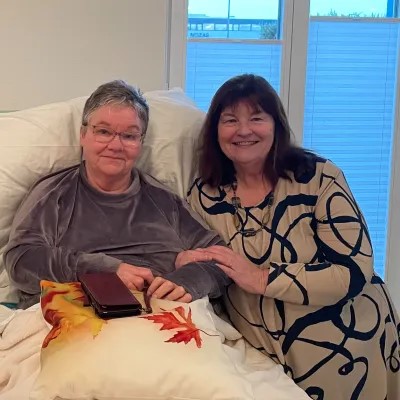Trigger Warning – this blog discusses terminal illness and suicide.
If anyone is affected by the topics in this blog, please ring the Samaritans helpline on 116 123.
In the lecture about bioethics and law, one of the areas we focused on was the Nazi’s during WWII and their mass murder or ‘euthanasia’ of people who they deemed ‘unsuitable’.
That made me think about euthanasia and the laws surrounding it. It is legal in Switzerland, and some other European countries and UK citizens often fly there to be euthanised.
My personal opinion is that euthanasia should be legalised in this country with strict legal restrictions and multiple approvals from medical professionals needed.
One of the reasons for my view is because my sister is a nurse who works in ICU in London. She has patients who are on life support machines and have no quality of life yet are kept alive. Some of these were born with such severe conditions, that they have never left the hospital, been able to talk or move, and are also blind and deaf. Is it not crueller to keep them alive, knowing there is no hope for recovery or improvement than to let their parents/medical professionals put them to rest?
In addition, last year my family had to put down our 13-year-old golden retriever. She had cancer and went through surgery and chemotherapy. Unfortunately, the tumour continued to grow, so we stopped treatment and until she became uncomfortable and unhappy. As hard as the decision was to put her down, it was in our home and was the most peaceful and graceful way to die that I could possibly imagine.
Why do we treat our animals with such love and allow them to be euthanised, as the ‘kindest thing’, yet we don’t treat humans with that same compassion? Especially if the human is able to consent?
In 2002, Diane Pretty was diagnosed with motor neurone disease – a chronic and terminal diagnosis. She did not want herself nor her family to suffer through the final stages of the disease. She wanted to end her life peacefully at home. Unfortunately, she was not granted this wish. She went to court to appeal to change the law; however, they did not grant her the right to die. Because of her condition, she had 24-hour care and was unable to commit suicide alone. She wished her husband could assist her with this, however this is illegal in the UK.

How can it be that someone who is able to commit suicide alone is not breaking the law, but someone who needs assistance is unable to? Surely this is discriminatory against those who are disabled.
Last year, Sharon Johnston, who was paralysed but mentally competent, decided that she no longer wanted to live. She therefore chose to be euthanised at Dignitas in Switzerland. Unable to travel alone, a retired NHS worker, Sue Lawford, took her to carry out Sharon’s wishes. Sharon was euthanised but, when Sue got back to the UK she was arrested and questioned on suspicion of attempted murder. She was investigated for six months before being cleared of charges.
It is an incredibly difficult and sensitive topic, and inevitably there will never be a unanimous opinion regarding it. There will undoubtedly be a grey area between assisted suicide, euthanasia, and manslaughter. This potentially puts doctors in a difficult position legally, especially if the patient is unable to consent for themselves. I’m unsure what precise restrictions and requirements should be put in place, but I firmly believe that people who have terminal illnesses or are suffering from incurable conditions should be able to have the choice to end their pain and suffering.
News article about Sue and Sharon: https://www.bbc.co.uk/news/uk-wales-63599107
My death my decision, a movement that Sue Lawford is a member of: https://www.facebook.com/MyDeathMyDecision/